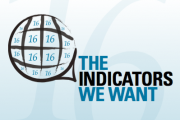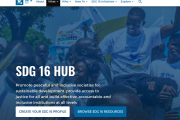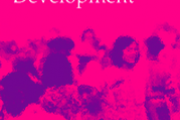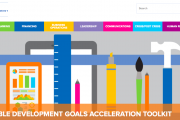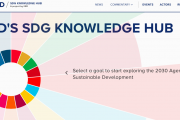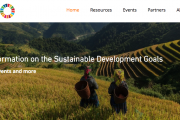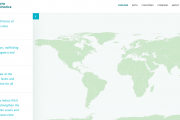SDG 16
The 2030 Agenda for Sustainable Development adopted in September 2015 by UN Member States is a universal and transformative vision to eradicate extreme poverty over the next 15 years within a framework of sustainable peace for people and the planet. The 2030 Agenda promotes the achievement of a set of 17 interdependent social, economic and environmental "Sustainable Development Goals" (SDGs), including SDG 16 to "Promote peaceful and inclusive societies for sustainable development, provide access to justice for all and build effective, accountable and inclusive institutions at all levels." Goal 16 and related targets and indicators are seen as an enabler goal for the entire 2030 Agenda, as without peace, effective institutions, and inclusive access to public goods and services, there can be no human development. This includes access to justice for all; effective, accountable and inclusive institutions at all levels; reducing violence; tackling corruption and organized crime; ensuring access to information and protecting fundamental freedoms. SDG 16 is thus seen as both an end in itself, and a crucial part of delivering sustainable development in all countries.
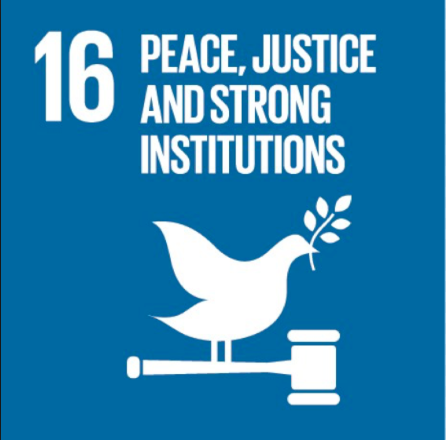
Monitoring and Reporting on SDG 16
Since committing to the 17 Sustainable Development Goals, Member States have also adopted numerous ways of tracking progress towards each of the goals, ensuring that no one is left behind. There are many SDG-related reporting processes taking place at the national and international levels, including: Voluntary National Reviews for the annual High-Level Political Forum (HLPF).
Monitoring of SDG16 is however a relatively new area of engagement. The data required to report progress on SDG 16 goes beyond that which is currently collected by most National Statistical Systems. It includes survey and administrative data—from line ministries, local governments, justice sector institutions, national human rights institutions—as well as statistics and stories available to civil society organizations, media, academia, and the private sector. Furthermore, the 2030 Agenda is about strengthened national ownership, and empowering transformation. Many countries wish to develop additional indicators, which reflect their own priorities, and to use information sources that enable them to report progress in a way that gives a more comprehensive sense of how life is changing for ordinary people—for example, the human stories available to journalists and civil society organizations can offer an important complement to statistics. Where can relevant data and information be found? Which institutions can help to obtain, analyze and present it in a way that makes it understandable and useful to policy makers? And how can the reporting process itself promote peaceful, just, and inclusive societies? Reporting on the targets and indicators included in the global SDG 16 framework requires a new approach that entails a collaborative effort.
The Global Alliance for Reporting Progress on Promoting Peaceful, Just and Inclusive Societies
Recognizing the need to form new partnerships to support Member States to report on peaceful, just, and inclusive societies, the Global Alliance brings together Member States, civil society, and the private sector to support effective and meaningful reporting on the achievement of peaceful, just, and inclusive societies—taking into account different national realities, capacities and levels of development, and respecting national policies and priorities. Co-facilitators UNDP, UNESCO, UNHCR, UNODC and the UN Global Compact provide Secretariat support to the Alliance, and assist to deliver support in response to direct country requests for assistance, and with preparation of events and dialogues between members.


